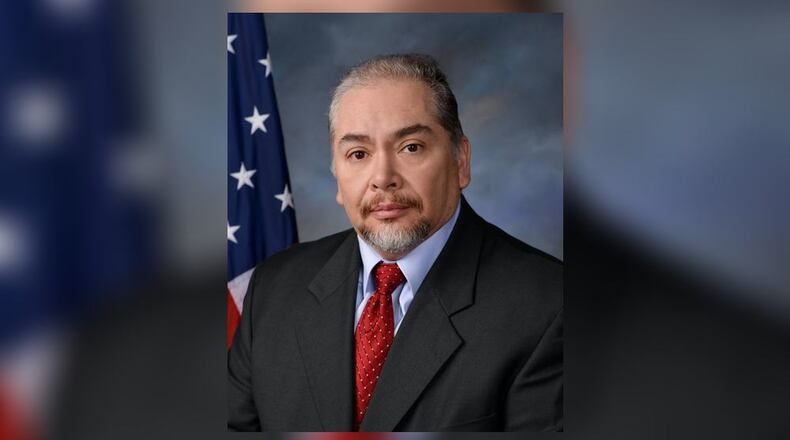DelRio died from gunshot wounds he sustained while executing a Nov. 4, 2019 search warrant with a Drug Enforcement Administration (DEA) Task Force at a house on Ruskin Road in Dayton.
Goddard is charged with murder, attempting to distribute controlled substances, possession of a firearm and other counts. Cortner faces charges related to trafficking and the death of DelRio.
Defense attorney Donald Malarcik, representing Goddard, argued that his client was acting in self-defense when he fired bullets at DelRio, pointing to the raid of the Ruskin Road house not happening during daylight hours and a change of plans for the raid.
Police entered the home after knocking on the door and announcing their presence. Roughly 20-40 seconds passed from the initial knock to police ramming the door open, police and special agents testified. Malarcik questioned if this was a reasonable amount of time.
Cruiser lights came on when DEA officers knocked on the house’s door, but they would not have been visible to people who were sitting in the home’s basement. If DelRio were crouching as he descended the stairs, too, it’s possible that Goddard did not see his police uniform before firing, Malarcik argued.
Malarcik also said that according to the DEA task force plan for the raid of the Ruskin Road house, DelRio was directed to move to the right when he entered. Instead, he went downstairs.
In rebuttal, U.S. attorney Brent Tabacchi argued that video evidence of a police interview with Cortner suggests he could have been seen by DelRio when police entered the house.
Dennis Lieberman, representing Cortner, argued that evidence presented during the trial does not show his client sold drugs to anyone, possessed drugs with the intent to distribute them, provided a gun to anyone or used his gun to shoot anyone.
Cortner was at the Ruskin Road house in 2019 to play video games in the basement with friends, his attorney said.
Prosecutors on Tuesday argued that text conversations and firearm sale records pointed to Cortner helping Goddard, who could not legally own a gun due to a prior felony, obtain a weapon. They also pointed to Cortner obtaining laser scopes for their handguns.
Lieberman argued that text evidence only shows Goddard passed along the number of a straw buyer and that Cortner arranged a meeting with him. This interaction could have been to obtain a gun for Cortner, not Goddard.
Lieberman pointed to a Nov. 4, 2019 text conversation between Cortner and another man, where they talked about the price of different kinds of marijuana, but did not make any agreement or point to any transaction.
Cortner also does not display the traits of someone who deals drugs or aids and abets drug trafficking and “flies under the radar”: he had a phone plan under his family’s name, his car had vanity plates with his last name incorporated in them, he had full-time employment and had a concealed carry permit, Lieberman said.
Tabacchi in rebuttal argued the two men were “armed for battle” when police came knocking on their door in 2019. Their guns combined contained 51 rounds.
Prosecutors also pointed to a video interview with Goddard where he told police in an interview that he heard knocking on the door and thought it could be law enforcement coming to the house. His first reaction was to grab his gun, he said in the video.
About the Author

